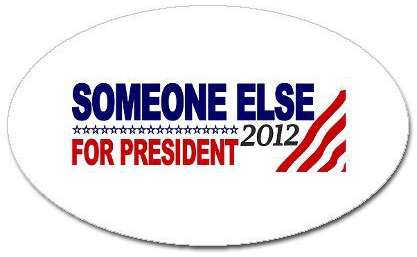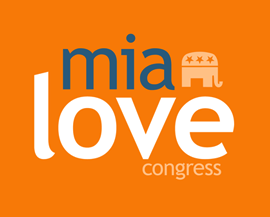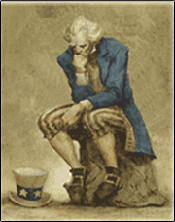We all knew it was a tax, so it’s really no surprise Obama would have Holder argue it as such in his legal defense of the monstrous health care law, but take that together with Kagan’s refusal to answer “No” when asked whether the Supreme Court had the right to tell you what to eat added to Michelle telling us “Desert is not a right.” through the lens of what follows and you get a sense of how much smarter this crowd thinks they are than you…
…and how dangerous this much power is for them (or anyone) to have over you.
Let me introduce you to a gentleman farmer, one Roscoe Filburn, from the Depression Era. His Supreme Court case is *exactly* the one Obama’s DOJ is using to argue the legality of the health care law. (It’s one of ten precedents they cite.)
From the Austin Free Press, an article opposing a farming bill, HR875, lays out Wickard V. Filburn. It makes reference to an article the Huffington Post had published in favor it:
“… Looking at the case of Wickard V. Filburn, we can see how a seemingly innocuous bill (like HR 875) can (lead to) draconian (food) circumstances …
The summary of the case of Wickard V. Filburn is really quite simple. The Agriculture Adjustment Act of 1938 (AAA) set quotas on the amount of wheat that could enter interstate commerce and created penalties for overproduction. Farmer, Roscoe Filburn, met his quota for wheat but failed to include in his quota the amount of wheat that he grew for his own consumption. Secretary of Agriculture, Wickard, ordered Filburn to destroy his excess crops and pay a fine. Filburn refused to pay and filed suit claiming that AAA was acting unconstitutionally seeking to limit local commercial activity, which went beyond the purview of Congress under the Commerce Clause….Shockingly, the Supreme Court held (in Wickard V. Filburn) that “wheat not intended in any part for commerce but wholly for consumption on the farm, are within the commerce power of Congress.” The Supreme Court reasoned that although the amount of wheat that Filburn would not purchase from the market (because he had provided for his own needs) may be trivial in this particular circumstance, it does not remove him from the scope of federal regulation because, his circumstance, when taken with similar others, could be far from trivial. This basically set the precedent that, under the act, the government is legally entitled to prevent individuals from growing wheat for their own consumption (beyond the designated quota) because, if too many people were to do this, it would negatively impact the interstate wheat market – which was precisely the fear outlined by the concerned citizen in the Huffington Post…”
“…One of the main arguments in the Huffington Post in support of HR 875 is that it… could not possibly affect small (family or even backyard) farms and farmer’s markets…”
Now let’s extrapolate this out to what these kinds of powers could actually mean in the wrong hands. This is not to say that anyone would do this, just that this would give our federal government the legal right to do it. From a December 29, 2009 article from Associated Content:
The specific wording in the bill defines a “food production facility” as any “farm, ranch, orchard, vineyard, aquaculture facility, or confined animal feeding facility” with the possibility (regardless of how remote) that it could be expanded to include any place that grows food, even a backyard garden… Proponents of the H.R.875 bill state there is nothing in the wording that would lead to making backyard gardens illegal. On the opposite side, it is believed that the wording is so broad that opponents to the bill insist this will also include all organic farms, small or family farms, and including backyard gardens at any location – even if it is not considered a typical farm.
Now here we are to this morning’s New York Times article where Obama’s DOJ is preparing its constitutional defense of health care on Wickard v. Filburn:
In its legal briefs, the Obama administration points to a famous New Deal case, Wickard v. Filburn, in which the Supreme Court upheld a penalty imposed on an Ohio farmer who had grown a small amount of wheat, in excess of his production quota, purely for his own use.
The wheat grown by Roscoe Filburn “may be trivial by itself,” the court said, but when combined with the output of other small farmers, it significantly affected interstate commerce and could therefore be regulated by the government as part of a broad scheme regulating interstate commerce.
Spooked yet? I don’t think Madison and Jefferson, when crafting our founding documents throwing off the tyranny of King George III had in mind that America would allow even a whisper of constitutional language that would even hint at powers so broad that the federal government could have this kind of power of you. In fact, reasonable people would argue that it was exactly that kind of power our 18th century ancestors were fleeing, yes?
God help us all.





